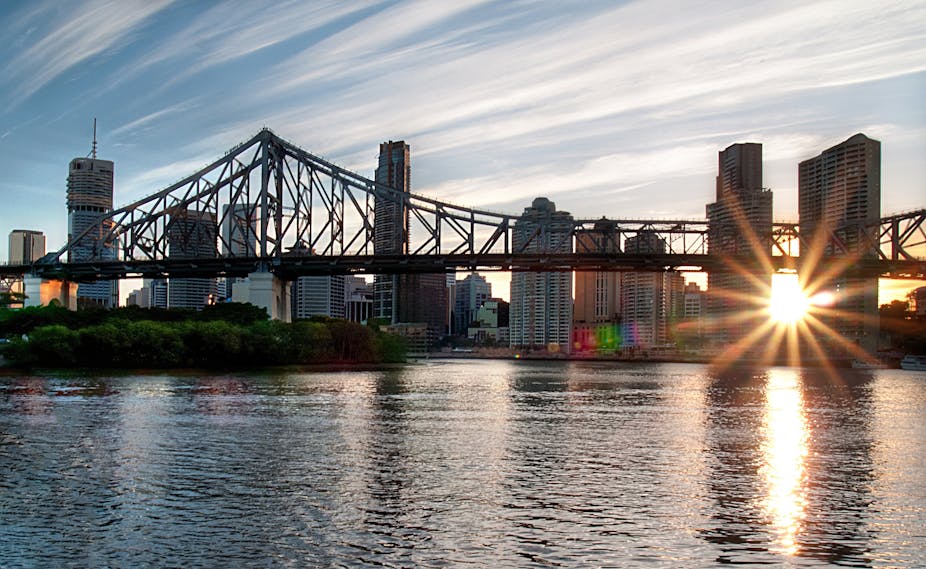When the powerful gather for the G20 summit in Brisbane this November, the core mandate is to discuss measures to support global economic growth, including trade liberalisation, investment and infrastructure development.
These discussions are very important for tourism – an industry that relies on the free movement of people and goods. Issues such as lifting visa restrictions are central to the mandate of agencies such as the United Nations World Tourism Organisation. In fact, at a time where we believe that people can travel freely wherever and whenever they like to, an astonishing 110 million international tourists – or 17% of all international arrivals – still require paper visas to be able to visit G20 countries.
Reducing barriers through visa requirements is essential for international tourism. Research commissioned by the World Travel and Tourism Council (WTTC) in 2014 showed that the Association of Southeast Asian Nations (ASEAN) would gain between 6 to 10 million additional international tourist arrivals by 2016 if they facilitated and improved visa processes.
Tourism relies on safe destinations and political security, something that cannot be emphasised enough in the light of current “conflict hotspots” globally (including the Middle East, Ukraine, and the South China Sea). Some even point to tourism as a force for peace as it fosters inter-cultural understanding and friendly exchange between nations.
Directly, the summit leads to travel of those participating in it. What could be coined “political tourism”, political meetings and conferences induce substantial amounts of travel. For the G20 in Brisbane it is expected that there will be about 4,000 delegates (some of whom will arrive with their families), 3,000 media, and 5,300 police from interstate and New Zealand.
Business tourism is often overlooked when we discuss tourism, but the WTTC established a compelling link between business travel and global trade: one third of growth in trade globally over the last ten years can be attributed to business-related travel and resulting increases in corporate productivity. WTTC’s analysis also shows that if business travel was reduced by one quarter for two consecutive years, global GDP would be 5% lower than if travel continued as normal.
The average business tourist in Australia spends A$280 per night, compared with a holiday visitor who spends $162.
Research on the economic benefit of G8 and G20 summits valued the 2009 and 2010 US and Canada summits at US$135 million and US$95.4 million respectively. The benefits measured include the immediate spending of participants and longer-term effects of increased investment, infrastructure and training. Similar numbers have been advanced as an estimate for the Brisbane summit.
How is Australia performing?
Eleven out of Australia’s top 20 international markets are G20 members. Amongst these are key markets such as China, the US, Japan, Korea and the UK. Other G20 countries, such as Russia, Brazil or Saudi Arabia, are not yet in the top 20 markets to Australia, but are seen as promising “emerging markets”.
Considering many of the traditional markets to Australia have been stagnating since the global financial crisis, and emerging markets are experiencing fast growth, increasing destination awareness in these countries represents a significant opportunity.
But focusing on one event, and dedicating tourism infrastructure to it, may also crowd out other forms of tourism, for example leisure tourists. Research on sport mega events has found that peaks in arrivals due to the event can be followed by a “low” in visitation, because participants or spectators time their visit for the event. This may be less relevant for political summits. However there might be other risks associated with political tourism. Hosting a political summit always bears the risk of “counter-summits” and activism that might undermine the destination image.
From a research perspective, major events have been analysed mainly with a focus on mega-sport events, for example Olympic Games, Commonwealth Games, and FIFA World Cups. Political summits have received very limited attention (with some exceptions).
Research to establish whether political events are different from other events, perhaps because of their political nature and the types of delegates, is yet to be undertaken, and the Brisbane G20 provides an excellent opportunity to research the economic impact of the summit, and compare it to other events hosted previously in Australia.

